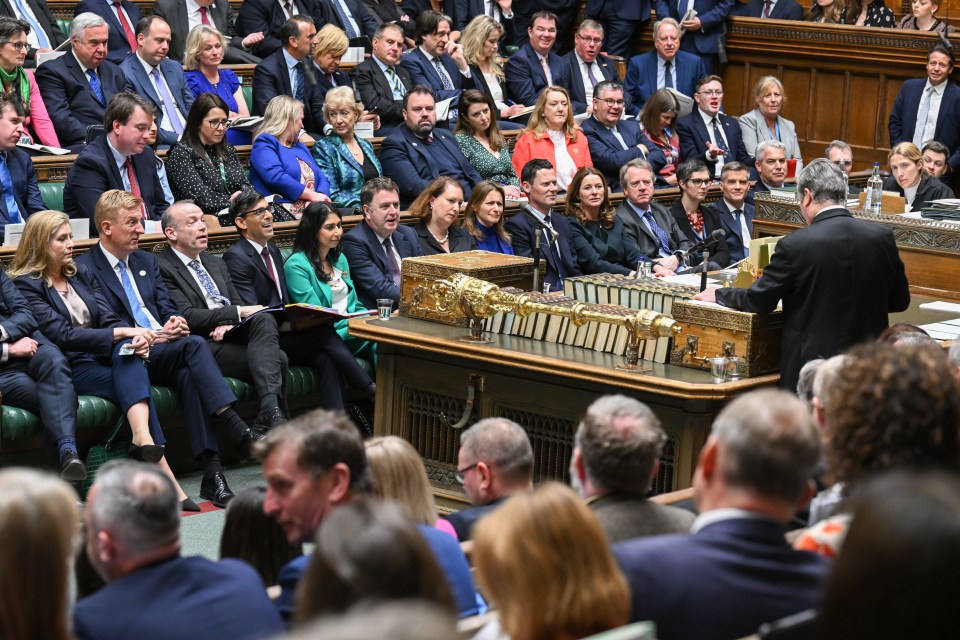I’d love to be an MP, but Britain is still too ashamed of open political ambition

When I was asked if I wanted to be an MP, I fudged an answer because I knew it would be met with scepticism . But our stifled laughs mean we’re stuck in a doom loop of bad politicians, writes Adam Hawksbee
To put it mildly, it has not been a good few weeks for the integrity of those in elected office. The damning report into Boris Johnson followed the resignation of Tory MP David Warburton over allegations of harassment and drug taking, new charges of sexual misconduct against two Labour MPs, and an SNP MP being suspended from Parliament for flagrant breaches of Covid-19 rules.
Councillors don’t fare much better. Away from the eyes of the national press, locally elected officials have the whip withdrawn at an alarming rate for financial impropriety, inappropriate behaviour, or racist and anti-semitic abuse. A recent report into Thurrock Council found that a £1.3bn black hole was a result of a “dereliction” in political leadership.
There are still lots of hardworking and upstanding politicians in the UK. But it’s hard to conclude that we are getting our very best people into politics. There are lots of reasons why this might be the case: long and inflexible hours, a sense that politics can’t really change things, the intrusions of the press and the nightmares of social media. To many, Westminster and our broader political class can seem alien and remote. And pressures on individual politicians can be extreme – earlier this year, Labour MP Stella Creasy was subject to an investigation by children’s services after a vexatious complaint by an online troll.
I would like to add one more suggestion: the stigma attached to simply running for office. Somebody saying that they might want to have a run at being a politician, either as a councillor or an MP, is likely to be met with at least a raised eyebrow and often a stifled laugh.
Even worse is the suspicion that someone could only possibly be doing it for selfish reasons – for power, or money, or fame. In truth, politics offers little of all three. The aggressive Twitter campaign against my colleague Seb Payne as he has tried to get selected as an MP must be off-putting to every journalist wanting to trade in their pen for a period of hands-on public service. Suzy Eddie Izzard has faced similar abuse in trying to become a candidate for the left, warning off any members of the public on the sidelines considering getting on to the pitch.
This is a peculiarly British phenomenon as well. I lived for a few years in the United States, where I attended an international public policy school. Students from around the world set out their plans to run for office before they finished shaking your hand. The campaigner from Modesto, California, who wanted to return to run for city council. The businessman from Manizales, Colombia, who had dreams to be mayor of his hometown. Fellow British students looked askance at these future leaders, embarrassed for their earnestness, and mumbled something about never having thought about being a politician (although many of them certainly had).
When asked by a journalist recently whether I was looking to enter Parliament, I fudged an answer. Self-consciousness got the better of me as I played down the idea that I could possibly be presumptuous enough to run. But in truth, representing a community in Parliament and properly getting onto the field of British politics would be an honour. I’d love to run for office. And we need more people to harbour that ambition, not less.
We have to usher in a complete cultural shift around standing for election. Some of that needs to be backed with policy change, like more family friendly hours for parliament and council chambers. We need more campaigns like the Conservative’s Women2Win and Labour’s MotheRED which support people to stand. And we need businesses to offer the flexibility to support their employees in becoming politicians, seeing it as an act of service to the community.
But most of all we need to change how we talk about becoming a politician. Next time someone says they might want to run for office, we should suppress the instinct to be cynical. Better still, everyone should reach out to the one or two people they think would be a boon to public life and tell them they should run.
We are stuck in a doom loop. People think all politicians are bad so good people shouldn’t go into it. This is precisely the wrong logic – and if we don’t change, it’ll only get worse.